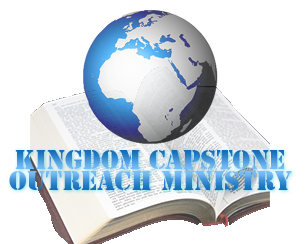You are here
IMPACT AS SALT (5)
“You were not RUBBED with SALT nor wrapped in swaddling cloths” – Ezekiel 16:4b
Believers in Christ ought to rub off on the world with Life-enhancing IMPACT as SALT: “As for your nativity, on the day you were born your navel cord was not cut, nor were you washed in water to cleanse you; you were not RUBBED with SALT nor wrapped in swaddling cloths” (Eze.16:4). This verse describes an exposed infant abandoned in the field upon its birth, unpitied, and in a condition in which it would have perished. The image represented Jerusalem, whom God preserved from destruction, brought up, espoused and exalted in sovereignty. But she proved faithless; hence God threatened her with judgement, but graciously promised to afterward fulfil His early covenant with her.
Through several metaphors, the prophet hinted how despised a people Israel was, and in what a forlorn condition she was birthed. The image of an infant cast out without receiving the commonest acts of parental regard, signifies Israel’s helplessness in her struggling into national existence. Our key verse uses metaphors of four life-enhancing procedures at childbirth, which this infant was not privileged to enjoy: cutting of the umbilical cord, washing in water, rubbing with salt, and wrapping in swaddling clothes. Without proper attention to the navel cord, the new-born body was liable to die. In particular, the rubbing of the baby’s body with salt, a custom prevailing in some parts of the East, was supposed to have both symbolical and physical connotations.
The virtue of salt as a protection from putrefaction expressed in a symbolical manner a hope and desire for the vigorous health of the child. Physically, salt is of a drying, abstersive, and cleansing nature, with the effect of a detergent. It was a known antibacterial in use at the time, and was therefore applied for sanitary purposes, to purge, clean, dry, and strengthen the new-born child, to make it more lovely and lively. The infant’s body was rubbed or sprinkled with salt to make the skin drier, thicker and firmer than the parts within. Also, salt and water were sometimes used as a detersive of uncleanness, to prevent putrefaction, to dry up the furrows, and harden the flesh.
Modern discoveries in science and medicine confirm the life-enhancing value of salt. It’s crucial for some quantity of salt to be in our bodies through the foods we eat. Without having enough of it, the muscles won’t contract, blood wouldn’t circulate, food wouldn’t digest, and the heart will stop to beat. Having the right level of salt helps in nerve conduction, the absorption of potassium and other vital nutrients, balancing electrolytes, and regulating the water level in each cell of the body.
The declaration by our Lord Jesus Christ in Matthew 5:13 and Luke 14:34 that “Salt is good,” infers that He doesn’t want His disciples living a salt-free life! Salt is good, valuable, relevant, and needed. Likewise, believers in Christ must be Life-enhancers in a world of decay.
Adetokunbo O. Ilesanmi (Meditations)
- Log in to post comments
Latest Tweets
No tweets to display now.
Our Vision
The vision of KCOM is that:
"the earth shall be filled with the knowledge of the Glory of the Lord as the waters cover the seas" (Habakkuk 2:14).
"But we all, with open face beholding as in a glass the Glory of the Lord, are changed into the same image from glory to glory even as by the Spirit of the Lord" (2 Corinthians 3:18).
Copyright © 2013–2026 Kingdom Capstone Outreach Ministry. | Designed by ZoeWox Technologies
